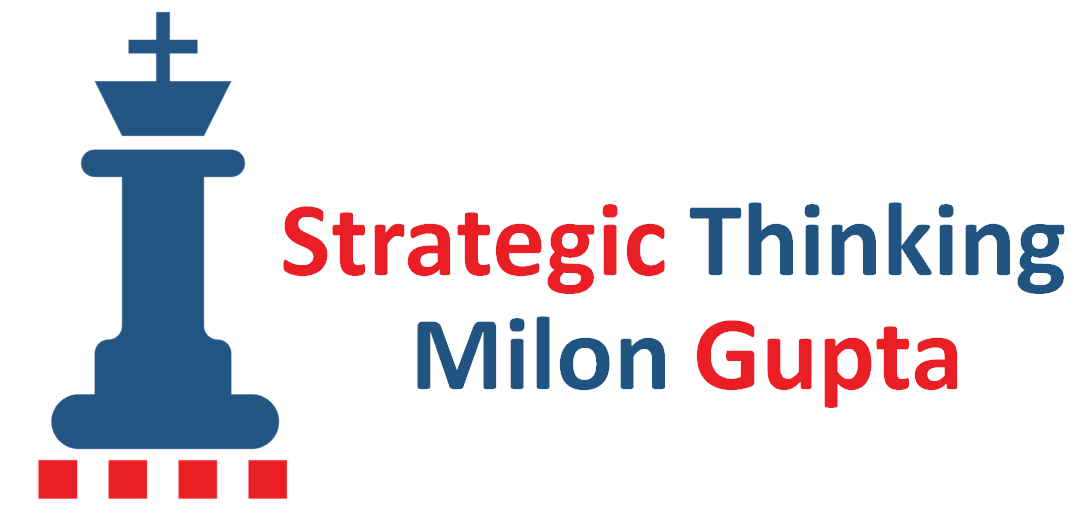
The prevalent pressure for good quarterly results has led to the dominance of executives with a short- to mid-term focus. This applies particularly to large corporations. Truly strategic leaders have become rare these days. However, in the current times of uncertainty and rapid change, strategic leaders are needed more than ever.
What are the distinguishing characteristics of a strategic leader? How do you recognise one? And how do you acquire the traits of a strategic leader? Based on my experience and encounters with strategic leaders, I have identified the following five traits, which I consider essential for strategic leadership:
1. Vision
Great strategic leaders have a clear and compelling vision that is going far beyond the current reality. These leaders are able to communicate their vision in an effective and inspiring way to mobilise commitment within their organisation and sector.
There have been a number of strategic leaders with such a clear and compelling vision. Steve Jobs and his vision of the iPod and iPhone comes to mind. However, there are also brilliant examples of strategic leadership outside of the US.

One of the most impressive strategic leaders I have met is N.R. Narayana Murthy. In 1981 he founded Infosys, a global software consulting company headquartered in Bangalore, India. He designed and implemented the vision of a global delivery model in IT consulting, which has become the foundation for the huge success of the Indian IT services outsourcing industry. At the time in the 1990s, implementing IT projects with distributed resources was revolutionary.
When I met Mr Murthy at a conference in Frankfurt in October 2006, he had already retired as CEO of Infosys and had focused on mentoring the top executives of Infosys. What struck me at the time was the concise analysis of the challenges in India and his clear views on how to address them. That was an impressive demonstration of how to communicate your vision effectively.
2. Openness
Strategic leaders are aware of the fast pace of change and that they cannot know it all. Their antennae are always on, as a seemingly minor detail might challenge their current strategic plans and be the trigger for changing the strategy for their organisation or department.
One of the strategic leaders who impressed me most for his openness was the late Klaus Tschira, who died in March 2015, one of the founders of German software giant SAP AG. At the headquarters of his foundation in Heidelberg, he used to attend lectures of Nobel prize winners and other eminent scientists he invited, listen intently and ask very precise questions, which both showed understanding and genuine interest.
Strategic leaders are open to learn about new trends in their own or other sectors as well as about developments within their organisation. By living a philosophy of openness they promote a culture of openness in their whole organisation, which facilitates the flow of information and the capacity of the organisation to adapt to a changing environment and turn challenges into opportunities.
3. Focus
Strategic leaders have the ability to focus their attention and energy on what they perceive as the most important activities and projects. Apple co-founder Steve Jobs is a prime example of a leader with a relentless focus. Instead of producing a whole family of smartphone models, he insisted on just having one iPhone model. Keeping it simple and focusing on making one product the best on the market at the time it was launched, had incredible benefits for product management and marketing.
There is, by the way, no contradiction between openness and focus. Openness is required in the decision-making phase. Once a decision is taken you need to focus relentlessly on implementation.
4. Courage
In the face of complexity and uncertainty, a strategic leader can never be sure, if his or her strategic decisions will turn out to be successful, despite all the information gathering and due diligence. Thus, strategic leaders need to have the courage to act and push changes they consider necessary, even if their decisions are not popular with some stakeholders.
A good example of a leader having the courage to make unpopular decisions is Marissa Mayer, President and CEO of Yahoo Inc. In November 2013, she introduced a controversial performance review system based on ranking of employees by managers, with employees at the low end of the bell curve being fired. Employees complained about the process, and the media criticized her, too. Yet, she stuck to her decision.
I am not in a position to judge whether her decision was right or wrong. The point is rather that you should have the courage to stick to a decision, if you think it is right. At the same time, you should be open for new insights and have the courage to revise a decision, if you come to a new evaluation.
5. Prudence
Strategic leaders act prudently. While being ready to take calculated risks, they avoid gambling and try to minimize risks where possible. A prime example of a prudent leader is the already mentioned N.R. Narayana Murthy. In 1995, he faced an unpleasant situation in which a major customer with a 25 percent share in the turnover of Infosys, was trying to squeeze fees to a point unsustainable for the Indian IT provider. Losing this customer left Infosys financially exposed.
Mr Murthy and his team drew lessons from this and developed a de-risking strategy. It entailed the creation of a risk mitigation council, which will, for example, ring the alarm when the dependency on a single client exceeds a certain threshold. This measure, according to Mr Murthy, has stabilised revenues and profits of Infosys. Finding the right balance between calculated risk-taking and prudence without getting overcautious is the art of great strategic leaders.
Conclusion
Anyone who wants to be a good strategic leader is well advised to study the world’s best strategic leaders and adopt their attitudes and behaviours. Remember: leaders are made, not born. If you need support on your way to the next level of strategic leadership, do not hesitate to contact me.
